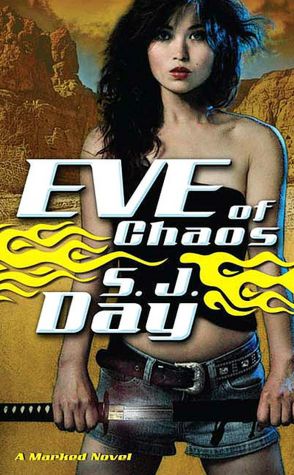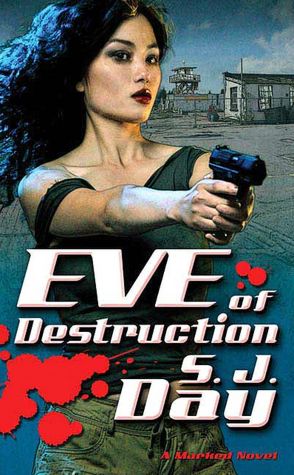The fantasy genre thrives on multiple book series.Readers love getting into an exciting world of magic populated by great characters, and then having multiple novels with which to enjoy the experience.Publishers do a lot of printing to meet this need, but then readers often complain that promising series degenerate into meandering narratives that go no where.Go to any online forum where fantasy books are being discussed and you will always find threads complaining about fantasy series that have gone awry.As a fantasy novelist, I can attest to how difficult it is to write stories that span multiple novels, but I think the inherent difficulty of novel writing is not entirely to blame for fantasy series dragging on through too many volumes.The business interests of publishers are clearly driving these sprawling McMansion-filled acres of fantasy books.Admittedly, the whole point of a fantasy series is to create an epic saga, which by definition is long, but long for the sake of long is not the same as telling a really good long story.The problem of needlessly long and usually boring fantasy series arises from the business of selling books to readers who like series.A publisher makes more money by selling more books.The more books a popular series has to offer, then the more money a publisher will likely make.Therefore, if a fantasy novel takes off with readers, then the publisher will naturally want the author to expand the story into multiple volumes.An obvious example of an over-extended series is the Wheel of Time by the late Robert Jordan.The poor man sadly died before completing what was supposed to be a twelve part epic.I have noticed repeatedly in online forums that many readers complain about the books of this series dragging on without much happening.Although Jordan obviously possessed the talent to capture the interest of many readers with his fiction, I suspect the endless pressure to produce more books eroded his ability to craft well-paced novels filled with action.I believe that publishers, naturally driven by their business interests, undermine an author's ability to create compelling fiction when the goal is to produce as many novels as possible.The problem is quantity over quality.Even the death of the Robert Jordan has not prevented the Wheel of Time's publisher from continuing the series.Brandon Sanderson, an able fantasy author gaining in popularity, was contracted to produce the conclusion to the series.Now here's a big surprise.The much anticipated conclusion of the Wheel of Time is going to be three volumes!I don't know that there is any way to correct this problem because readers who like series are inexorably drawn to buy the next installment.Even if he or she was disappointed with the last novel by a favored author, that person will find it hard to resist the next novel because it just might be better and something exciting might happen.Hope is a powerful driver of people's actions.I am in that situation right now with the enormously popular series A Song of Ice and Fire by George R.R.Martin.The first three books of the series were astounding.When I was reading them, I was constantly thinking about the characters and what might happen when the books were not in my hands.That is exactly the experience I am looking for from great fiction.When the fourth book A Feast for Crows came out I pre-ordered it in hardcover and eagerly started reading it as soon as it arrived.To my disappointment though, that book entered an undeniable doldrums.All of my favorite characters were absent and I did not get to find out anything about anything that had been left hanging at the end of the third book.After reading that book, I very much sensed that it was just a bunch of fluff thrown at me to get my money now that I had been hooked on the series.Even so, I will indulge in buying the fifth book, A Dance with Dragons, which illustrates exactly why publishers can make a viable business out of publishing artificially long series just for the sake of selling books.It ceases to be about the story and simply becomes pushing product.I understand the business forces at play.When a fantasy series takes off, it becomes a recognizable brand, and publishers are not interested in letting a brand come to a timely and glorious end and then risking their capital on developing a new brand around a new story, even if it is from the same author.Publishers appear mostly to play it safe and milk a cash cow series until the skeletal cow drops dead in an over-grazed pasture.This process is especially vexing for fantasy readers because many of them, like myself, really enjoy reading a good series.I think the fantasy readers' great love of series is very much inspired by the Lord of the Rings Trilogy.This is the starting place for many fans of fantasy, and the trilogy trains them to love multiple book stories.However, J.R.R.Tolkien wrote his famous trilogy as one story.It has a beginning, middle, and end, and each book contributes to the ultimate goal of the narrative.He did not write The Fellowship of the Ring, have it take off with readers, and then have his publisher say, "Mr.Tolkien, please keep writing these things until no one can stand them anymore or you drop dead.".As a fantasy writer, I personally follow the model of writing a complete story that happens to take multiple volumes.This is risky, but the risk is all mine.I want to tell the story I want to create and not let it be driven (overworked?) by market forces.I hope that eventually the market will reward my efforts as I create fantasy series that actually end and that avoid long drawn out volumes that are basically killing time instead of advancing a story.
Thursday, September 6, 2012
Why Fantasy Series Drag on and Why We Keep Buying Them
The fantasy genre thrives on multiple book series.Readers love getting into an exciting world of magic populated by great characters, and then having multiple novels with which to enjoy the experience.Publishers do a lot of printing to meet this need, but then readers often complain that promising series degenerate into meandering narratives that go no where.Go to any online forum where fantasy books are being discussed and you will always find threads complaining about fantasy series that have gone awry.As a fantasy novelist, I can attest to how difficult it is to write stories that span multiple novels, but I think the inherent difficulty of novel writing is not entirely to blame for fantasy series dragging on through too many volumes.The business interests of publishers are clearly driving these sprawling McMansion-filled acres of fantasy books.Admittedly, the whole point of a fantasy series is to create an epic saga, which by definition is long, but long for the sake of long is not the same as telling a really good long story.The problem of needlessly long and usually boring fantasy series arises from the business of selling books to readers who like series.A publisher makes more money by selling more books.The more books a popular series has to offer, then the more money a publisher will likely make.Therefore, if a fantasy novel takes off with readers, then the publisher will naturally want the author to expand the story into multiple volumes.An obvious example of an over-extended series is the Wheel of Time by the late Robert Jordan.The poor man sadly died before completing what was supposed to be a twelve part epic.I have noticed repeatedly in online forums that many readers complain about the books of this series dragging on without much happening.Although Jordan obviously possessed the talent to capture the interest of many readers with his fiction, I suspect the endless pressure to produce more books eroded his ability to craft well-paced novels filled with action.I believe that publishers, naturally driven by their business interests, undermine an author's ability to create compelling fiction when the goal is to produce as many novels as possible.The problem is quantity over quality.Even the death of the Robert Jordan has not prevented the Wheel of Time's publisher from continuing the series.Brandon Sanderson, an able fantasy author gaining in popularity, was contracted to produce the conclusion to the series.Now here's a big surprise.The much anticipated conclusion of the Wheel of Time is going to be three volumes!I don't know that there is any way to correct this problem because readers who like series are inexorably drawn to buy the next installment.Even if he or she was disappointed with the last novel by a favored author, that person will find it hard to resist the next novel because it just might be better and something exciting might happen.Hope is a powerful driver of people's actions.I am in that situation right now with the enormously popular series A Song of Ice and Fire by George R.R.Martin.The first three books of the series were astounding.When I was reading them, I was constantly thinking about the characters and what might happen when the books were not in my hands.That is exactly the experience I am looking for from great fiction.When the fourth book A Feast for Crows came out I pre-ordered it in hardcover and eagerly started reading it as soon as it arrived.To my disappointment though, that book entered an undeniable doldrums.All of my favorite characters were absent and I did not get to find out anything about anything that had been left hanging at the end of the third book.After reading that book, I very much sensed that it was just a bunch of fluff thrown at me to get my money now that I had been hooked on the series.Even so, I will indulge in buying the fifth book, A Dance with Dragons, which illustrates exactly why publishers can make a viable business out of publishing artificially long series just for the sake of selling books.It ceases to be about the story and simply becomes pushing product.I understand the business forces at play.When a fantasy series takes off, it becomes a recognizable brand, and publishers are not interested in letting a brand come to a timely and glorious end and then risking their capital on developing a new brand around a new story, even if it is from the same author.Publishers appear mostly to play it safe and milk a cash cow series until the skeletal cow drops dead in an over-grazed pasture.This process is especially vexing for fantasy readers because many of them, like myself, really enjoy reading a good series.I think the fantasy readers' great love of series is very much inspired by the Lord of the Rings Trilogy.This is the starting place for many fans of fantasy, and the trilogy trains them to love multiple book stories.However, J.R.R.Tolkien wrote his famous trilogy as one story.It has a beginning, middle, and end, and each book contributes to the ultimate goal of the narrative.He did not write The Fellowship of the Ring, have it take off with readers, and then have his publisher say, "Mr.Tolkien, please keep writing these things until no one can stand them anymore or you drop dead.".As a fantasy writer, I personally follow the model of writing a complete story that happens to take multiple volumes.This is risky, but the risk is all mine.I want to tell the story I want to create and not let it be driven (overworked?) by market forces.I hope that eventually the market will reward my efforts as I create fantasy series that actually end and that avoid long drawn out volumes that are basically killing time instead of advancing a story.
Subscribe to:
Post Comments (Atom)


0 comments:
Post a Comment